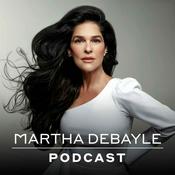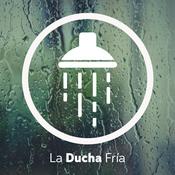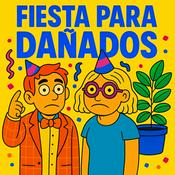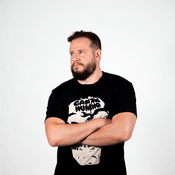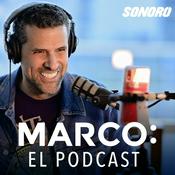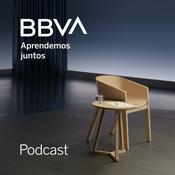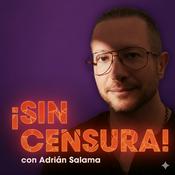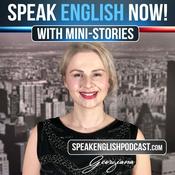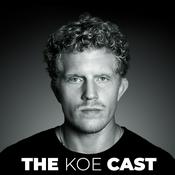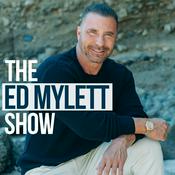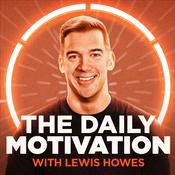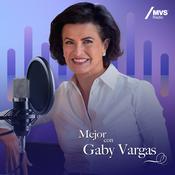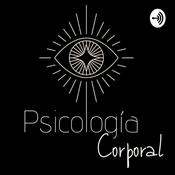124 episodios

Imposter syndrome after a lifetime of hacking her ADHD (Debbie Reber’s story)
06/1/2026 | 26 min
Debbie Reber — author, podcast host, and founder of Tilt Parenting — shares her unexpected journey of discovering her ADHD as an adult. She talks about the imposter syndrome that came with it, especially after years of writing about executive function and advocating for neurodivergent kids.Debbie explains how being extremely organized her whole life — hacking her ADHD without realizing it — kept her from seeing the signs sooner. She reflects on believing she “should” be someone who has natural balance, feels accomplished every day, and can simply unwind at night.She also opens up about growing up as the class clown, being told she was too loud, and how therapy is helping her untangle those early messages and better understand herself.For more on this topic: ADHD and imposter syndrome in womenPersonal story: What I do when imposter syndrome creeps in Check out Debbie’s books, including Differently Wired: The Parent’s Guide to Raising an Atypical ChildFor a transcript and more resources, visit ADHD Aha! on Understood.org. You can also email us at [email protected]. ADHD Unstuck is a free, self-guided activity from Understood.org and Northwestern University designed to help women with ADHD boost their mood and take small, practical steps to get unstuck. In about 10 minutes, learn why mood spirals happen and get a personalized action plan of quick wins and science-backed strategies that work with your brain. Give it a try at Understood.org/GetUnstuck.Understood.org is a nonprofit organization dedicated to empowering people with learning and thinking differences, like ADHD and dyslexia. If you want to help us continue this work, donate at understood.org/give Hosted by Simplecast, an AdsWizz company. See pcm.adswizz.com for information about our collection and use of personal data for advertising.

Suicidal ideation, masking, and overlooked ADHD (From Hyperfocus)
23/12/2025 | 25 min
This week, we’re sharing a powerful episode from our friends at Hyperfocus — a deeply personal story with its own “aha” moments. Inattentive ADHD is often missed, especially in boys who don’t fit the typical ADHD stereotype. Brandon Saiz shares his later-in-life diagnosis and what it meant to have been overlooked for so long. If you’re not already listening to Hyperfocus, check it out here.Content warning: Mentions of suicideFor more on this topic: Read: The 3 types of ADHDListen: The “devastating” findings of a decades-long ADHD studyFollow: Brandon Saiz on Substack For a transcript and more resources, visit our friends at Hyperfocus on Understood.org. You can also email us at [email protected]. ADHD Unstuck is a free, self-guided activity from Understood.org and Northwestern University designed to help women with ADHD boost their mood and take small, practical steps to get unstuck. In about 10 minutes, learn why mood spirals happen and get a personalized action plan of quick wins and science-backed strategies that work with your brain. Give it a try at Understood.org/GetUnstuck.Understood.org is a nonprofit organization dedicated to empowering people with learning and thinking differences, like ADHD and dyslexia. If you want to help us continue this work, donate at understood.org/give Hosted by Simplecast, an AdsWizz company. See pcm.adswizz.com for information about our collection and use of personal data for advertising.

From ADHD intensity to steady ground — and into disability theology (Ange Nolan returns!)
09/12/2025 | 30 min
Back by popular demand… it’s Ange Nolan! Ange returns to ADHD Aha! to share how her ADHD journey has evolved since we last spoke. That includes her decision to study disability theology and help make worship spaces more supportive for neurodivergent people. Going back to school brought up old memories of past academic struggles. Ange talks openly about navigating those feelings with more clarity and self-understanding. She also gives an update on her personal life — this time, celebrating a calm, steady relationship that looks very different from the intense dynamics she experienced in the past.For more on this topic: Ange’s first interview: ADHD, loving intensely, and impulsivityA guide to ADHD and emotionsFor a transcript and more resources, visit ADHD Aha! on Understood.org. You can also email us at [email protected]. ADHD Unstuck is a free, self-guided activity from Understood.org and Northwestern University designed to help women with ADHD boost their mood and take small, practical steps to get unstuck. In about 10 minutes, learn why mood spirals happen and get a personalized action plan of quick wins and science-backed strategies that work with your brain. Give it a try at Understood.org/GetUnstuck.Understood.org is a nonprofit organization dedicated to empowering people with learning and thinking differences, like ADHD and dyslexia. If you want to help us continue this work, donate at understood.org/give Hosted by Simplecast, an AdsWizz company. See pcm.adswizz.com for information about our collection and use of personal data for advertising.

Revisiting: ADHD, loving intensely, and impulsivity (Ange’s story)
25/11/2025 | 31 min
This week we’re revisiting one of our favorite ADHD Aha! episodes. Ange Nolan once suspected she had ADHD but was dismissed by her doctor. Years later, an ADHD “iceberg” graphic that visualized how so many ADHD symptoms live beneath the surface finally made everything click. After her diagnosis, Ange recognized how much ADHD had shaped her romantic relationships, her drive for intense connection, her “chameleon” behavior, and her impulsive career changes. Be sure to tune in next time! Ange is coming back to tell us how life has changed in the three years since her episode aired. Spoiler: She’s doing great.For more on this topic:Listen: ADHD and messiness (Jeannie’s story)Read: ADHD and emotionsRead: Understanding impulsivityListen: ADHD and marriage (Rachel and Jon’s story)Timestamps: (00:50) The ADHD iceberg moment that revealed hidden symptoms(05:20) Early warning signs, misdiagnosis, and feeling dismissed(09:40) Career pivots, masking, and finding work that finally fits(15:30) Impulsivity, hyperfixation, and burnout in relationshipsFor a transcript and more resources, visit ADHD Aha! on Understood.org. You can also email us at [email protected]. ADHD Unstuck is a free, self-guided activity from Understood.org and Northwestern University designed to help women with ADHD boost their mood and take small, practical steps to get unstuck. In about 10 minutes, learn why mood spirals happen and get a personalized action plan of quick wins and science-backed strategies that work with your brain. Give it a try at Understood.org/GetUnstuck.Understood.org is a nonprofit organization dedicated to empowering people with learning and thinking differences, like ADHD and dyslexia. If you want to help us continue this work, donate at understood.org/give Hosted by Simplecast, an AdsWizz company. See pcm.adswizz.com for information about our collection and use of personal data for advertising.

Diagnosed with ADHD as a child, but she didn’t find out until college (Atira’s story)
11/11/2025 | 21 min
When Atira Roberson was in first grade, she was evaluated and diagnosed with ADHD, dyscalculia, and a specific learning disability. But she didn’t find out about those diagnoses until college — when she went through all of her old paperwork herself. Growing up, Atira knew she was different and was bullied because of it. Her mother was her biggest advocate, but her parents chose not to tell her about her diagnoses at the time. In this episode, Atira — now an English language arts teacher — shares how learning the truth changed the way she saw herself, and how it shaped her passion for teaching and education policy today.For more on this topic: Why Black girls with learning disabilities need more visibility, from the Opportunity Gap podcastTo be Black in America with a learning disability, by Atira RobersonWhat are learning disabilities?For a transcript and more resources, visit ADHD Aha! on Understood.org. You can also email us at [email protected]. ADHD Unstuck is a free, self-guided activity from Understood.org and Northwestern University designed to help women with ADHD boost their mood and take small, practical steps to get unstuck. In about 10 minutes, learn why mood spirals happen and get a personalized action plan of quick wins and science-backed strategies that work with your brain. Give it a try at Understood.org/GetUnstuck.Understood.org is a nonprofit organization dedicated to empowering people with learning and thinking differences, like ADHD and dyslexia. If you want to help us continue this work, donate at understood.org/give Hosted by Simplecast, an AdsWizz company. See pcm.adswizz.com for information about our collection and use of personal data for advertising.
Más podcasts de Educación
Podcasts a la moda de Educación
Acerca de ADHD Aha!
Escucha ADHD Aha!, Martha Debayle y muchos más podcasts de todo el mundo con la aplicación de radio.net
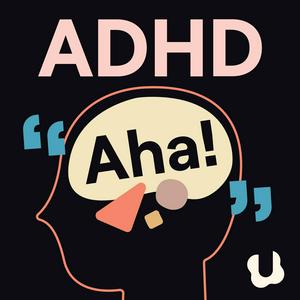
Descarga la app gratuita: radio.net
- Añadir radios y podcasts a favoritos
- Transmisión por Wi-Fi y Bluetooth
- Carplay & Android Auto compatible
- Muchas otras funciones de la app
Descarga la app gratuita: radio.net
- Añadir radios y podcasts a favoritos
- Transmisión por Wi-Fi y Bluetooth
- Carplay & Android Auto compatible
- Muchas otras funciones de la app


ADHD Aha!
Descarga la app,
Escucha.
